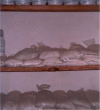Pesticide retailers' knowledge and handling practices in selected towns of Tanzania
- PMID: 25287148
- PMCID: PMC4271478
- DOI: 10.1186/1476-069X-13-79
Pesticide retailers' knowledge and handling practices in selected towns of Tanzania
Abstract
Background: Approximately 300 pesticide retailers are currently registered in Tanzania. Inadequate knowledge and unsafe handling practices among retailers may contribute to human pesticide exposure and environmental contamination. This study investigated pesticide retailers' qualifications, work experience, safety practices and the products distributed so as to identify opportunities for preventing Acute Pesticide Poisoning (APP).
Methodology: In 2005, employees of pesticide retail firms in six Tanzanian towns were surveyed using a semi-structured questionnaire and physical inspection of premises. In addition, information on products distributed in 2004 and 2005 was collected from Arusha and Arumeru firms to assess potential risk posed for end-users.
Results: More than half of the participating firms (58.6%) were not registered. Most agents on sale in Arusha and Arumeru were hazardous products including WHO Class I and II products (61.7%) and the mean number of cholinesterase inhibiting agents was 5.8 (range 2-8). Major deficiencies found included semi-trained staff (52%), lack of first-aid kits (38.6%), repacking and decanting of pesticides into smaller unlabelled containers (25.3%), lack of fire-fighting equipment (22.6%) and distribution of unregistered products (9.3%). Compared to unregistered companies, those companies that were registered were more likely to report practicing safe container disposal (40% versus 19%; p = 0.06) and to have an absence of leaking containers (36% versus 15%; p = 0.04).
Conclusion: Pesticide distribution in Tanzania was accompanied by many unsafe practices that may contribute to the burden from APP, not only affecting the distributors but also farmers who buy and use these products. Market pressures appear to be encouraging decanting of pesticides to enable retailers to make profits. Registration of firms appears to be associated with safer practices. Comprehensive interventions to strengthen enforcement mechanisms by increasing the number of pesticide inspectors, ensuring adequate financial support for enforcement activities and providing training opportunities for pesticide retailers and the end users are strongly recommended.
Figures
Similar articles
-
Farmers' knowledge, practices and injuries associated with pesticide exposure in rural farming villages in Tanzania.BMC Public Health. 2014 Apr 23;14:389. doi: 10.1186/1471-2458-14-389. BMC Public Health. 2014. PMID: 24754959 Free PMC article.
-
Factors affecting pesticide safety behaviour: The perceptions of Nepalese farmers and retailers.Sci Total Environ. 2018 Aug 1;631-632:1560-1571. doi: 10.1016/j.scitotenv.2018.03.144. Epub 2018 Mar 28. Sci Total Environ. 2018. PMID: 29727980
-
Knowledge, attitudes and practices (KAP) among agricultural extension workers concerning the reduction of the adverse impact of pesticides in agricultural areas in Tanzania.Med Lav. 2002 Jul-Aug;93(4):338-46. Med Lav. 2002. PMID: 12212403
-
Pesticide Use, Poisoning, and Knowledge and Unsafe Occupational Practices in Thailand.New Solut. 2018 Aug;28(2):283-302. doi: 10.1177/1048291118759311. Epub 2018 Feb 23. New Solut. 2018. PMID: 29473443 Review.
-
Management of Empty Pesticide Containers-A Study of Practices in Santa Cruz, Bolivia.Environ Health Insights. 2017 Jun 29;11:1178630217716917. doi: 10.1177/1178630217716917. eCollection 2017. Environ Health Insights. 2017. PMID: 35173440 Free PMC article. Review.
Cited by
-
Inadequate Personal Protective Equipment Factors and Odds Related to Acute Pesticide Poisoning: A Meta-Analysis Report.Int J Environ Res Public Health. 2024 Feb 23;21(3):257. doi: 10.3390/ijerph21030257. Int J Environ Res Public Health. 2024. PMID: 38541259 Free PMC article. Review.
-
The Body, the Brain, the Environment, and Parkinson's Disease.J Parkinsons Dis. 2024;14(3):363-381. doi: 10.3233/JPD-240019. J Parkinsons Dis. 2024. PMID: 38607765 Free PMC article. Review.
-
Patterns of pesticide usage in agriculture in rural Tanzania call for integrating agricultural and public health practices in managing insecticide-resistance in malaria vectors.Malar J. 2020 Jul 16;19(1):257. doi: 10.1186/s12936-020-03331-4. Malar J. 2020. PMID: 32677961 Free PMC article.
-
What agro-input dealers know, sell and say to smallholder farmers about pesticides: a mystery shopping and KAP analysis in Uganda.Environ Health. 2021 Sep 1;20(1):100. doi: 10.1186/s12940-021-00775-2. Environ Health. 2021. PMID: 34470641 Free PMC article.
-
Pesticide Knowledge and Safety Practices among Farm Workers in Kuwait: Results of a Survey.Int J Environ Res Public Health. 2017 Mar 24;14(4):340. doi: 10.3390/ijerph14040340. Int J Environ Res Public Health. 2017. PMID: 28338612 Free PMC article.
References
-
- United Republic of Tanzania Plant Protection Act, 1997. Acts supplement on the Gazette of the United Republic of Tanzania. 1997;78(27):252–281.
-
- United Republic of Tanzania . Plant Protection Regulations. Dar es Salaam: Ministry of Agriculture, Food Security and Cooperatives; 1999.
-
- TPRI . Annual Report 2007. Pesticides and Environmental Management Center. 2007.
-
- Puyun Y, Ping L, Jinyu Z, Xinmei H, Jianping L, Yahong L. Farmer’s cultural practices and management of vegetable pests by small producers in Yunnan province. Plant protection. 2007.
-
- Rother AH, Hall R, London L. Pesticide use among emerging farmers in South Africa: contributing factors and stakeholder perspectives. Dev South Afr. 2008;25(4):388–424. doi: 10.1080/03768350802318464. - DOI
Publication types
MeSH terms
Substances
LinkOut - more resources
Full Text Sources
Other Literature Sources
Medical




